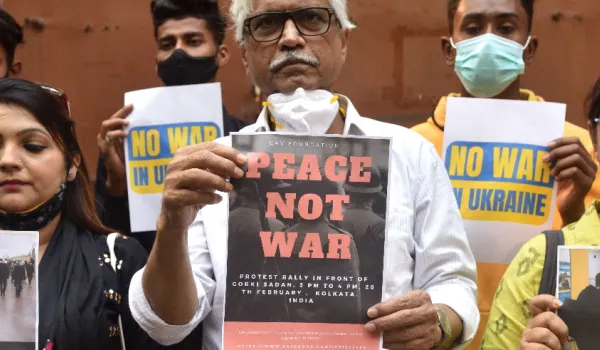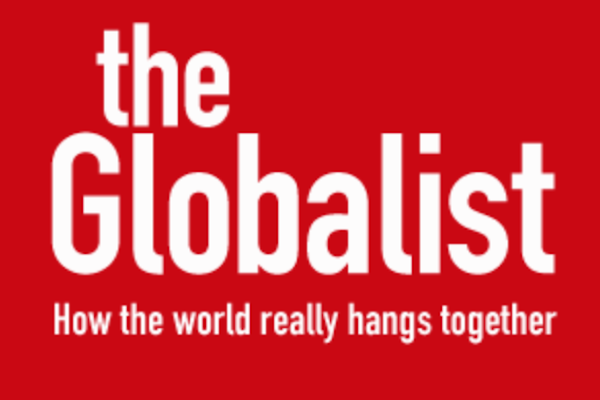Multipolarity, the Mantra of Authoritarianism
Multipolarity is the compass orienting the Left’s understanding of international relations. All streams of the Left in India and globally have for long advocated for a multipolar world as opposed to a unipolar one dominated by the imperialist USA.
At the same time, multipolarity has become the keystone of the shared language of global fascisms and authoritarianisms.
It is a rallying cry for despots, that serves to dress up their war on democracy as a war on imperialism. The deployment of multipolarity to disguise and legitimise despotism is immeasurably enabled by the ringing endorsement by the global Left of multipolarity as a welcome expression of anti-imperialist democratisation of international relations.
By framing its response to political confrontations within or between nation states as a zero-sum option between endorsing multipolarity or unipolarity, the Left perpetuates a fiction that even at its best, was always misleading and inaccurate. But this fiction is positively dangerous today, serving solely as a narrative and dramatic device to cast fascists and authoritarians in flattering roles.
The unfortunate consequences of the Left’s commitment to a value-free multipolarity are illustrated very starkly in the case of its response to the Russian invasion of Ukraine.
The global and the Indian Left have legitimised and amplified (to varying degrees) Russian fascist discourse, by defending the invasion as a multipolar challenge to US-led unipolar imperialism.
The freedom to be fascist
On 30 September, while announcing the illegal annexation of four Ukrainian provinces, Russian President Vladimir Putin
spelt out what multipolarity and democracy meant in his ideological framework. He defined multipolarity as freedom from the attempts by Western elites to establish their own 'degraded' values of democracy and human rights as universal values; values 'alien' to the vast majority of people in the West and elsewhere.
Putin’s rhetorical ploy was to declare that the concepts of a rules-based order, democracy, and justice are nothing more than ideological and imperialist impositions by the West, serving merely as pretexts to violate the sovereignty of other nations.
As Putin played to the justifiable outrage at the long list of crimes by Western countries – including colonialism, imperialism, invasions, occupations, genocides, and coups –
it was easy to forget that his was not a speech demanding justice and reparations and an end to these crimes. In fact, by asserting the self-evident fact that the Western governments did not have “any moral right to weigh in, or even utter a word about democracy,” Putin skilfully cut people out of the equation.
People of the colonised nations are the ones who fought and continue to fight for freedom. People of the imperialist nations come on the streets to demand democracy and justice, and protest racism, wars, invasions, occupations committed by their own governments. But Putin was not supporting these people.
…y asserting the self-evident fact that the Western governments did not have “any moral right to weigh in, or even utter a word about democracy”, Putin skilfully cuts people out of the equation.
Rather, Putin has signalled “like-minded” forces all over the world — far-right, white-supremacist, racist, anti-feminist, homophobic and transphobic political movements — to support the invasion, as part of a project advantageous to them all: of overturning the “unipolar hegemony” of universal values of democracy and human rights and “to gain true freedom, a historical perspective.”
Putin uses a “historical perspective” of his own choice to support a supremacist version of a Russian “country-civilisation” where laws dehumanise LGBT persons and where references to historical events are criminalised in the name of “strengthening (Russia’s) sovereignty.” He asserts Russia’s freedom to deny and defy the democratic norms and international laws defined “universally” by bodies like the United Nations.
The project of “Eurasian integration,” which Putin projects as a multipolar challenge to the “imperialist” EU and western unipolarity, can be properly understood only as a part of his explicitly anti-democratic ideological and political project. (It is another matter that the aspect of competition between the US and Russia as Big Powers, is complicated here by
the shared political project represented by Trump in the US and Putin in Russia.
A common language
The language of 'multipolarity' and 'anti-imperialism' also finds resonance in Chinese hyper-nationalist totalitarianism.
A
joint statement by
Putin and Xi in February, shortly before Russia invaded Ukraine, stated their shared rejection of universally accepted standards of democracy and human rights, in favour of culturally relativist definitions of these terms: “A nation can choose such forms and methods of implementing democracy that would best suit its [...] traditions and unique cultural characteristics […] It is only up to the people of the country to decide whether their State is a democratic one.” These ideas were explicitly credited by the statement to “the efforts taken by the Russian side to establish a just multipolar system of international relations.”
For Xi, the “'universal values' of freedom, democracy, and human rights were used to cause the disintegration of the Soviet Union, the drastic changes in Eastern Europe, the ‘colour revolution,’ and the ‘Arab Springs’, all caused by the intervention of the US and the West.”
Any people’s movement that demands widely accepted human rights and democracy, is treated as an inherently illegitimate imperialist colour revolution.


 www.theindiaforum.in
www.theindiaforum.in








